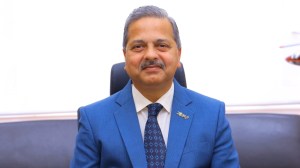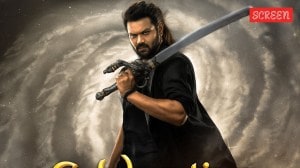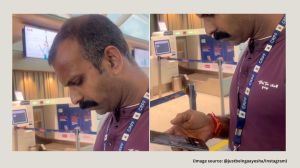Thank God it’s Friday across the world
The World Cup gets down to serious business tomorrow, the wheat separated from the chaff; the four quarter-final matches offer an intriguing mix of old rivalries

The World Cup gets down to serious business tomorrow, the wheat separated from the chaff; the four quarter-final matches—kicking off with the tournament’s two most attractive teams pitted against each other—offer an intriguing mix of old rivalries, opportunities for revenge, a dream debut for one country and the possible end of the road for several players.
It is also a sign that, after the spate of upsets four years ago, this tournament is the Real McCoy. Every country that has won the World Cup—barring Uruguay, who never made it to Germany—is represented in the last eight, providing a fixture list dreamed up in heaven.
The big match, of course, is here in Berlin, where Germany’s resurgence will face the ultimate test against the pass masters of Argentina. The hosts are the tournament’s surprise team, discarding—in a metaphor for the country itself—their old stodgy style of play for adventurous, attacking football.
The mood is upbeat on Germany’s prospects. At Berlin’s revamped glass-and-steel central station, the fans have begun arriving from around Germany. The chants of “Deutschland, Deutschland” have already started. The national flag is everywhere, the floors on trains and trams have been painted with diagrams of Germany’s winning goals in previous World Cup finals.
The media, so long used to defending boring German teams, is full of it. Today’s papers have trotted out every conceivable reason why Germany should win. Here are a couple:
• Bears traditionally make Germans bullish and so the emergence of Bruno last fortnight has been interpreted as a favourable omen. Bruno is a bear who escaped from an Italian zoo and was at large through Germany, where he was seen as a symbol of the free-spirited team. Germany’s mascot each time they won the World Cup—in 1954, 1974 and 1990—was a bear. So is the symbol of Berlin, where tomorrow’s match, and the final, will be played. It is also the symbol of Pope Benedict, formerly the German Cardinal Ratzinger. Poor Bruno, alas, is no more, and his shooting by security officials has prompted an outcry among conservationists.
• The numbers add up. One numerologist has offered this calculation: 54×74-1990=2006, proving that this must be Germany’s year. He added this rider, though: Germany must end the game in normal time, or they’ll lose it.
The optimism has rubbed off on the team and its coach. At the state-of-the-art convention centre here this afternoon, team captain Michael Ballack exuded the same confidence.
“We want to be realistic,” Ballack said. But why shouldn’t beating Argentina be realistic?
The question is, where does confidence turn into nationalism, and where does nationalism go out of hand? The question arises, piquantly, in Berlin’s grand Olympic Stadium, the scene of much of Germany’s more unsavoury past nationalism.
The current trends of flag-waving and chanting haven’t enthused everyone, especially those who remember the last time it happened, and the outpouring of public sentiment when the Dutch—the most bitter enemies—lost to Portugal earlier this week raised eyebrows. The general belief, though, is that this is a different country, far more heterogenous, and those wearing the red-yellow-black wigs can also be of Asian, African or South American descent.
This is also reflected in the team, which includes two blacks, and whose two most exciting players, Lukas Podolski and Miroslav Klose, have Polish blood. It is those two who give Germany the biggest chance of victory tomorrow. Will Argentina play the perfect guests and leave early?


- 01
- 02
- 03
- 04
- 05





























